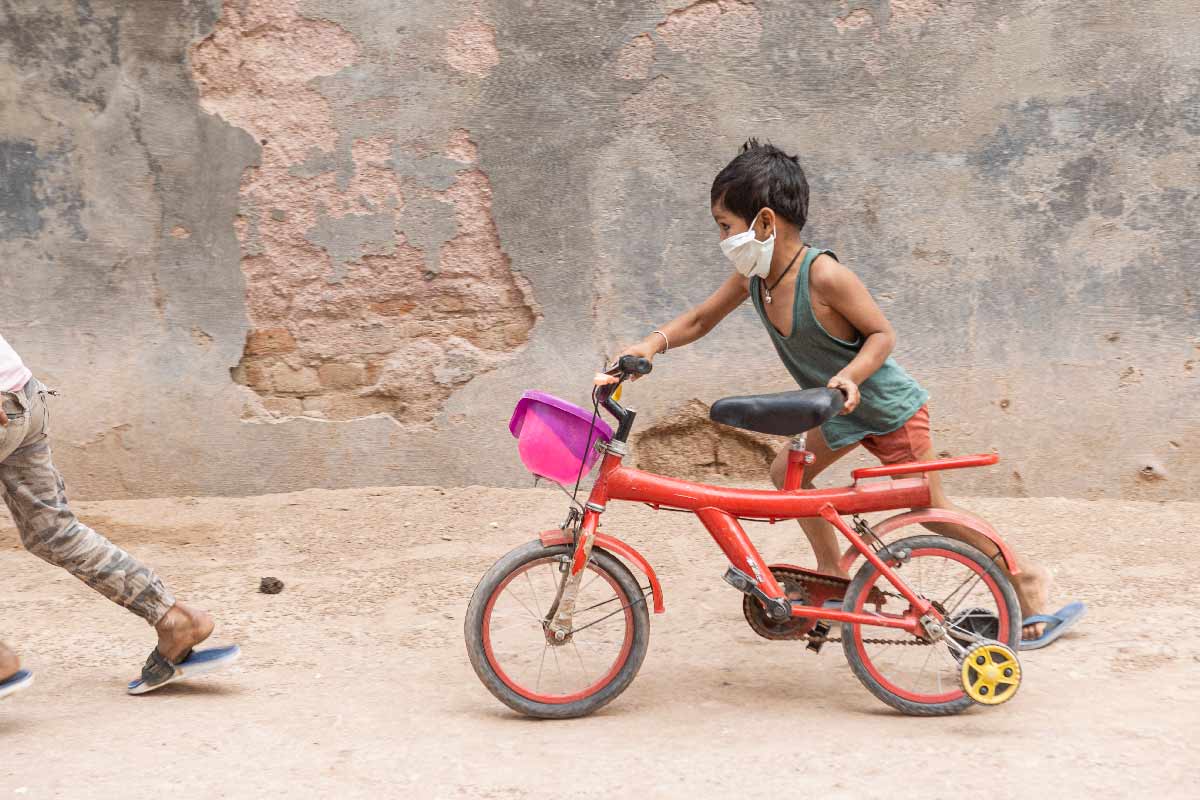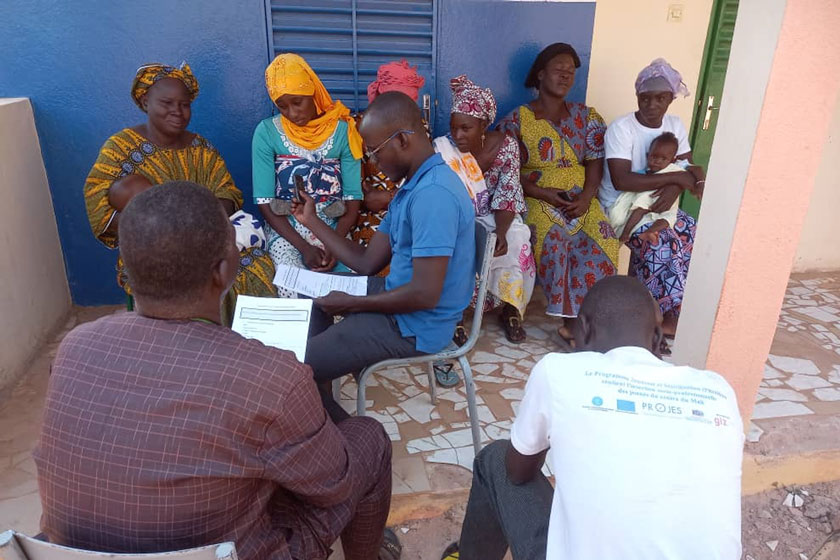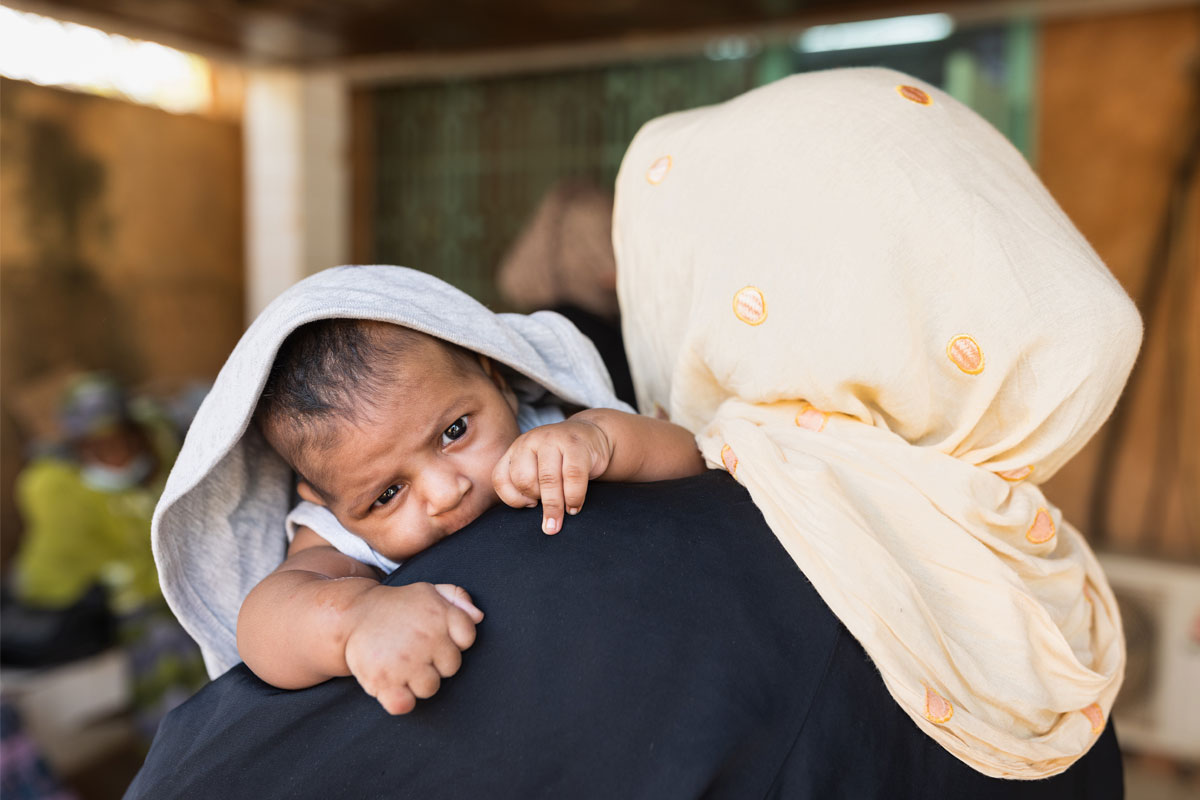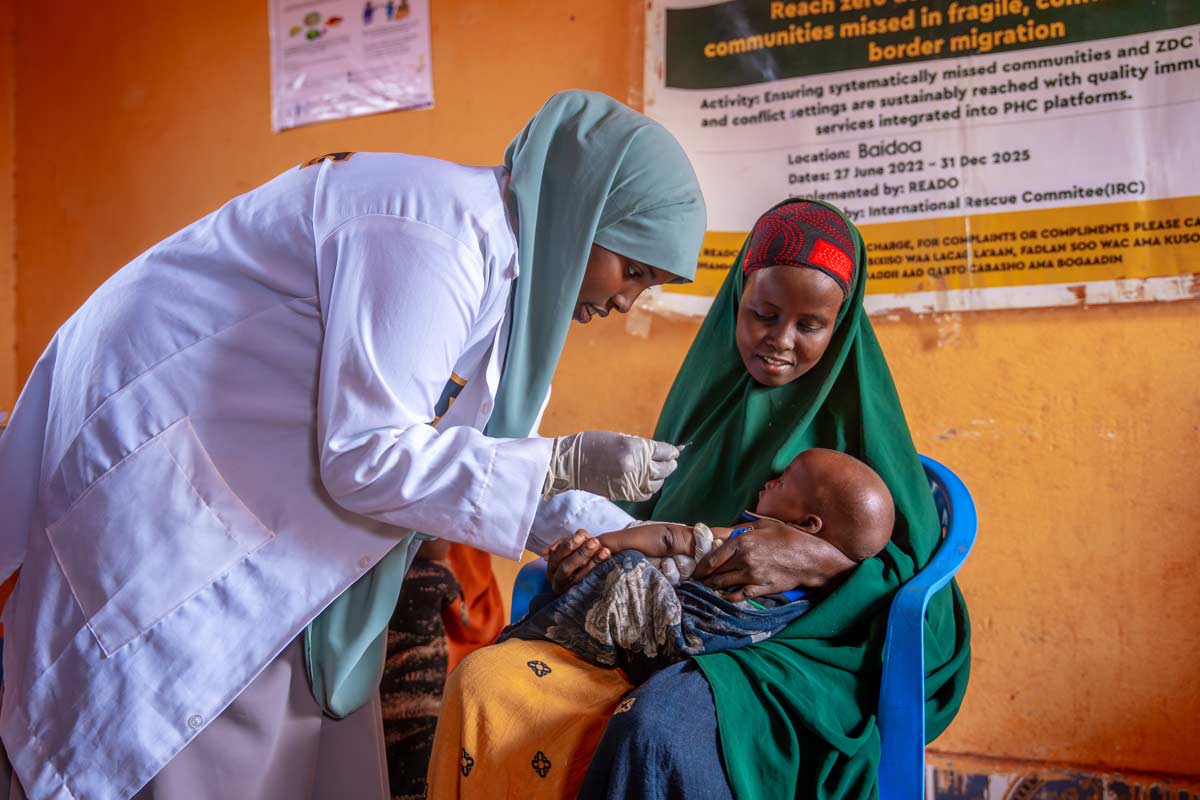What happened at the Zero-Dose Learning Hub’s first meeting?
Gavi’s Zero-Dose Learning Hub meets in-person to discuss key learnings and challenges in reaching zero-dose children.
- 10 August 2023
- 5 min read
- by JSI
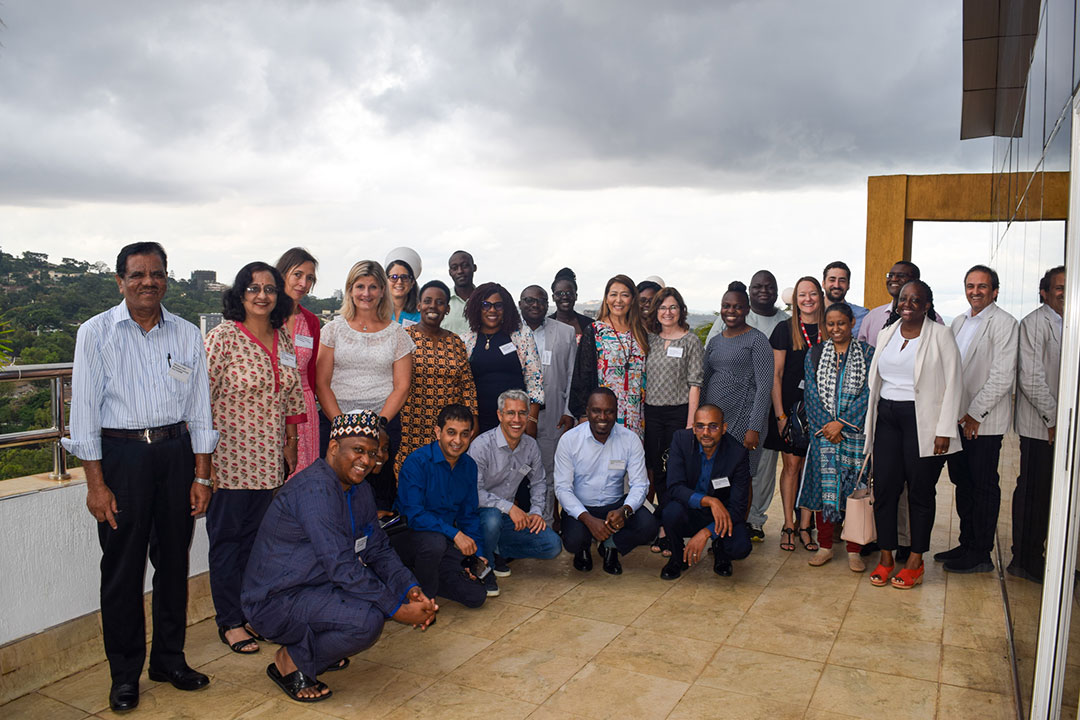
Despite decades of progress in reaching zero-dose children – children who have not yet received a single routine vaccine shot – millions of children remain unvaccinated. In June, Gavi, the Vaccine Alliance, convened members of the new Zero-Dose Learning Hub (ZDLH) initiative and associated Country Learning Hubs in Kampala, Uganda, to discuss strategies and best practices for collecting high-quality data and evidence that can be used to successfully identify and reach zero-dose children and missed communities.
The Country Learning Hub is a very important effort to strengthen Uganda’s immunisation programme through the evidence generated.
– Director General Dr Henry G. Mwebesa from the Uganda Ministry of Health
The Zero-Dose Learning Hub is composed of country hubs in Bangladesh, Mali, Nigeria and Uganda, as well as a global hub led by JSI Research & Training Institute, Inc. (JSI), in partnership with the Indian Institute of Health Management Research (IIHMR) and The Geneva Learning Foundation (TGLF).
The goal of this collaboration, facilitated by Gavi, is to supplement existing routine monitoring efforts by building a deeper understanding of and sharing learning on the factors that affect efforts to reach zero-dose children, by focusing on key learnings from the four country hubs in their zero-dose work.
As these Country Learning Hubs move forward with their scopes of work, representatives from each country attended the in-person launch meeting to discuss their plans and lessons learned to date.
Meeting Highlights
Over the three-day meeting, attendees connected to build relationships with the ultimate goal of learning from each other while increasing coordination and alignment across the consortium, which is a new learning initiative for Gavi. The initiative aims to generate, synthesise and share zero-dose data and evidence at both the country and global levels, with the goal of improving programming and outreach to zero-dose children and missed communities.
On the first day, meeting attendees were joined by Director General Dr Henry G. Mwebesa from the Uganda Ministry of Health, and Drs Michael Baganizi and Rita Atugonza from the Uganda National Expanded Program on Immunization (UNEPI). Given the importance of high-quality data in identifying zero-dose children, the meeting attendees focused on understanding existing data collection systems and identifying ways to strengthen these systems across diverse landscapes and within real-world constraints. While each country in attendance has made strides in reaching zero-dose children, opportunities exist to strengthen current data collection activities.
Have you read?
Director General Dr Mwebesa acknowledged this challenge in his opening remarks, noting, “The Country Learning Hub is a very important effort to strengthen Uganda’s immunisation programme through the evidence generated. I look forward to learning from the evidence from this initiative and look forward to seeing what the findings will be.”
Although each hub has established its own unique scope of work, in-country landscape, challenges, and opportunities, similar themes emerged during discussions across the four country hubs:
-
Establishing common measures: Per their scopes of work, Country Learning Hubs are required to report to Gavi on a set of core indicators every six months, including the number of children immunised with the first dose of the diphtheria, pertussis, and tetanus vaccine (DTP1), coverage of DTP1 across the community, and drop-out rates between the first and third dose of DTP. This data can be collected through existing administrative data systems and supplemental data collection systems, including household surveys. In addition, the hubs are expected to determine trends over time in their targeted subnational areas as well as at the community, district and national levels where feasible. However, during the in-person meeting, the Country Learning Hubs identified a variation in the age ranges used to define zero-dose children in each country. The group determined that the age range for conducting implementation research would be 18 weeks (4.5 months) to 23 months to capture the initial dose of DTP provided at four months and complete vaccination by 23 months.
-
Strengthening existing monitoring systems: While existing data systems are an asset to the Country Learning Hubs, attendees also discussed the strengths and limitations of administrative and household survey data and opportunities to strengthen data collected by existing monitoring systems. The hubs will incorporate insights from the meeting into their planning and programme strategy.
-
Tailoring programme activities based on country-specific contexts: Meeting attendees also explored each country’s contextual factors, including socio-economic and political drivers, that may impact programmatic results. Potential barriers to reaching zero-dose children include service delivery and access challenges; demand-related barriers; gender-related barriers; and supply chain issues. Potential enablers discussed included strong programme leadership, management and coordination; partnerships with community-based organisations; the use of data-driven decision making; and cost-effective approaches. In small groups, the hubs also explored the importance of both quantitative and qualitative data and discussed different methods of measurement and how results will be applied to identifying zero-dose children.
Moving forward, each Country Learning Hub will work to operationalise key takeaways from the in-person meeting into their scopes of work. In partnership with the country hubs, the overarching Zero-Dose Learning Hub will work to lift up key learnings, challenges and successes so partners across the globe can use these findings to improve their own zero-dose work.
Get Involved
This September, the Zero-Dose Learning Hub welcomes immunisation practitioners across the globe to join in an online learning exchange, ZDLH-X, which will feature stories, lessons learned and challenges from community healthcare workers.
For more information about the ZDLH and CLH activities, visit zdlh.gavi.org.
Author
Jessica Holli
About the Country Learning Hubs
The following partners are responsible for implementing the CLHs in each country:
- Bangladesh CLH: International Centre for Diarrhoeal Disease Research, Bangladesh (icddr,b), Jhpiego Corporation, RedOrange Media and Communication
- Mali CLH: GaneshAID and Center for Vaccine Development Mali (CVD Mali) CNAM
- Nigeria CLH: African Field Epidemiology Network (AFENET) and Africa Health Budget Network (AHBN)
- Uganda CLH: Infectious Diseases Research Collaboration (IDRC), PATH, and Makerere University School of Public Health (MakSPH)
